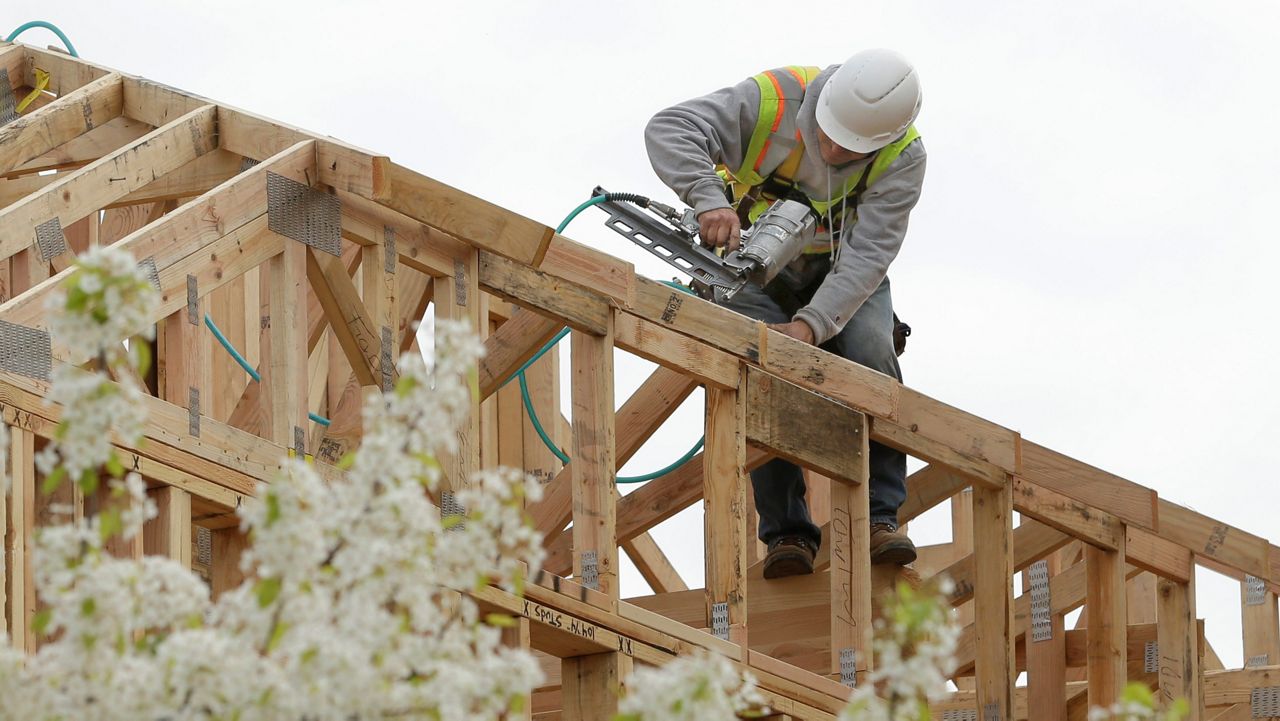ORANGE COUNTY, Calif. — With the latest defeat of another rent control initiative, housing developers say now is the time for state and local leaders to come up with real solutions to the state's growing housing problem.
A day after the sound defeat of Proposition 21, a state ballot measure that would have given local municipalities the ability to enact rent control on housing units 15 years or older, TruAmerica Multifamily President and CEO Bob Hart said state and local leaders need to work together or else this issue will continue to pop up.
"The state and the city have to come together to build more housing," Hart said. "We can't make it draconian. You have to incentivize builders to build."
For the second time in as many years, a proposition that would have repealed the state's Costa-Hawkins Rental Housing Act has been voted down. Now both sides are – again – left wondering how to solve the housing crisis, but this time amid a pandemic.
Passed in the mid-1990s, Costa Hawkins limits cities' ability to establish rent control on certain residential units such as single-family homes, condominiums, and multifamily buildings built after 1995. It also allows landlords, who own rent-controlled buildings, to place them to market rate once the tenant vacates it.
Housing Is A Human Right, the housing advocacy division of the AIDS Healthcare Foundation, led an initiative in 2018 to change Costa Hawkins and help the estimated 17 million tenants in the state. The group cited the high cost of living, the annual increase of apartment rent, and more homeless on the street.
Prop. 10 would have allowed local governments the ability to enact rent control on all types of housing.
Californians voted against it, 65.5% vs. 34.5%.
Despite the overwhelming margin, Housing is A Human Right tweaked the ballot measure and brought it up again in this election cycle. Unlike Prop. 10, instead of allowing municipalities the ability to impose blanket rent control provision on all types of housing, the new wrinkle would have allowed local governments to enact rent control on certain types of housing and apartments 15 years or older on a rolling basis.
On Election Day, voters, again, voted it down, 66% to 33%, according to early unofficial election results.
Housing is A Human Right Director and Yes on 21 Campaign Director René Christian Moya blamed Gov. Gavin Newsom for not putting any muscle to support the rent control measure.
While the California Democratic Party endorsed it, Newsom was not in favor of the new rent control ballot. The governor had helped pass a rent cap that went into effect on Jan. 1, limiting how much a landlord could hike rent to no more than 5% plus the rate of inflation and made it harder to evict a tenant.
"Running against both the governor of California and his allies in the powerful real estate industry was never going to be easy," Moya said in a statement to Spectrum News 1. "Given the headwinds we faced against - some very deep-pocketed and deceitful opponents - we are disappointed, although not completely surprised that Prop. 21 fell short at the ballot box."
Moya did not say if the organization will introduce another rent control ballot in the next election cycle in a follow-up interview.
"It is still too early," Moya said. "We haven't discussed that yet, but we are going to continue to fight for the minorities and working-class people who are getting pushed out of their homes because of the broken status quo.
"You can't build, build, build your way out of this crisis," Moya added. "We're 3.5 million affordable housing units in the hole. There is no way, in the next 20 years, to build our way out of this."
One thing seems clear. Apartment Association of Greater Los Angeles Executive Director Dan Yukelson said Californians don't want rent control.
Studies have shown that rent control does not work. While it benefits current renters, it creates scarcity in the market long-term and disincentivizes housing developers to build new housing, according to reports.
If Proposition 21 had passed for landlords, it would have added another layer of problems during an already challenging time. Many landlords are struggling to stay afloat and keep up with their mortgages since cities have placed an eviction moratorium due to the coronavirus pandemic. Some tenants aren't paying their rent, Yukelson said.
"Proposition 21's proposed, extreme price controls on virtually all of California's rental properties would have exasperated our already existing housing shortages and affordability issues," Yukelson said. "The proposal would not have created even one unit of new housing, let alone a unit of affordable housing. Had Proposition 21 passed, it would have been nothing more than a 'bankruptcy bill' for the rental housing industry here in California."
The defeat of the initiative came at a high cost, again.
In 2018, the two sides raised more than $104 million in total fundraising, with about $80 million from opponents that included the largest apartment owners in the nation, according to the LA Times.
Both sides raised a whopping $125 million this time around, with $85 million from opponents, the LA Times reported.
That money could have helped build more housing, Yukelson said.
"This was definitely a costly measure," Hart, the TruAmerica CEO, said.
TruAmerica has a portfolio of more than 43,000 units across the U.S., including 4,200 units throughout California. TruAmerica owns apartments in Orange County and Los Angeles.
Hart said his company would do its part and continue to look for investment opportunities and fix up more workforce housing.
But the state and city leaders need to step up.
"We can't keep talking about it anymore," Hart said. "We just have to do it."



